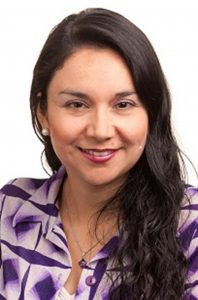Dr Mariela Carvajal
Department of Accountancy and Finance
The University of Otago
In the past two years, we have been extremely challenged, uncertainty has become our new normal, and thus we are living in a world that is constantly and rapidly changing. There is a persistent call for adaptation, resilience and preparation.
Circumstances have unidirectionally directed us toward digitalisation in all aspects. Companies and industries have had to adopt new technologies and embrace online procedures liked or not. This has been especially difficult for small and medium enterprises (SMEs) as they have less resource available in comparison to large companies. Numerous small and medium business owners were unprepared for this period that deeply had affected their businesses and left many of them with no chance to survive but to exit the market. According to the Organisation for Economic Co-operation and Development (OECD), SMEs are the most economically affected group, indicating that over 50 per cent of SMEs could be out of business during this time. Work on strategies for business recovery is crucial for SMEs, where the implementation of digital tools and technology can significantly help them to overcome a hard phase and continue operations.
Accounting in this context is not limited to the formulation of financial reports or budgets only, rather accounting can be seen as a broader financial literacy where accountants play a role of business advisors assisting clients in key fields such as planning, strategy and management. Additionally, in the accounting profession, incorporating Information and Communication Technologies (ICT) into our skillset is indispensable when it comes to advising and leading clients in such matters, but also in the anticipation of potential obstacles and successfully facing them. The New Zealand and Australian accounting professional bodies further emphasise the importance of acquiring ICT capabilities, which are now key for future accountants. In these days, being updated and using ICT is not just necessary, it is imperative.
This role of accounting is consistent with the University of Otago curriculum design and courses have included several technological innovations, essential in this discipline. Our current students employ diverse educational online platforms, software and digital tools at different levels. They are exposed to real world activities as well, putting into practice what is learned in the classroom. For example, accounting students recently engaged with Māori and Pasifika businesses, working as business advisors by providing assistance regarding problems, issues or challenges these firms were facing. Māori and Pasifika organisations received practical recommendations from students in areas they needed support. Common areas of improvement across all businesses were financing strategy, accounting, and adoption of new technologies and digitalisation. The initiative was beneficial for both students and businesses, aiding to business continuation and enhancement. Accounting evolving to advisory utilising technology and digitalisation is pivotal in the overall economic response and recovery.
There are multiple benefits to implementing technological and online systems, such as increasing transparency, efficiency, productivity and speed. Equally important in this going digital process is considering the users interacting with it, their experience, needs and preferences as behind technology advancement there are individuals who may be affected. Therefore, the wellbeing of people and society is foremost in any big transition and transformation, particularly in digitalisation. Our purpose needs to be the welfare of all participants, including the general public, community and environment.


